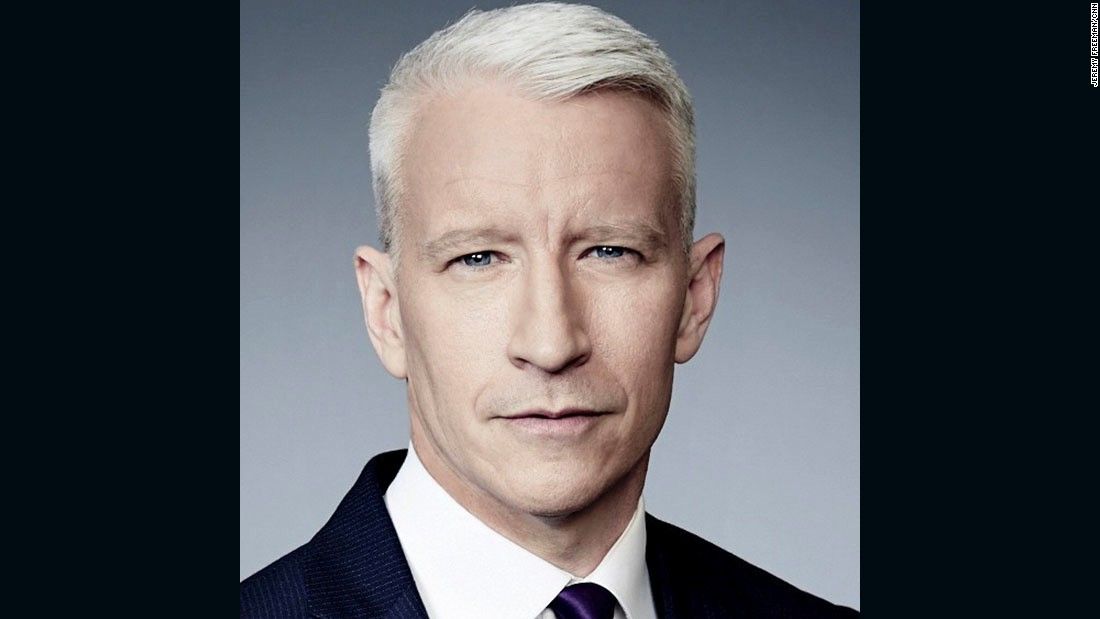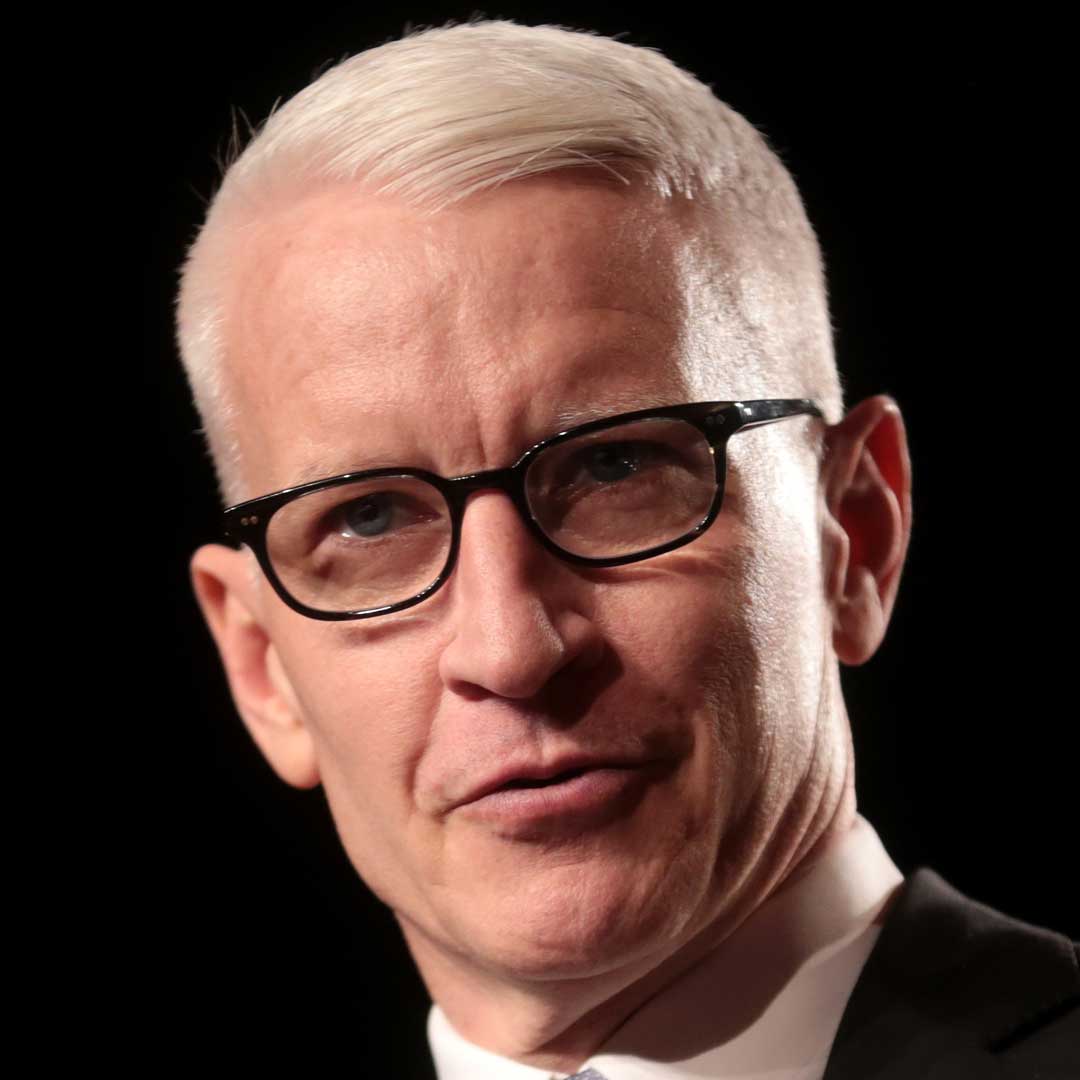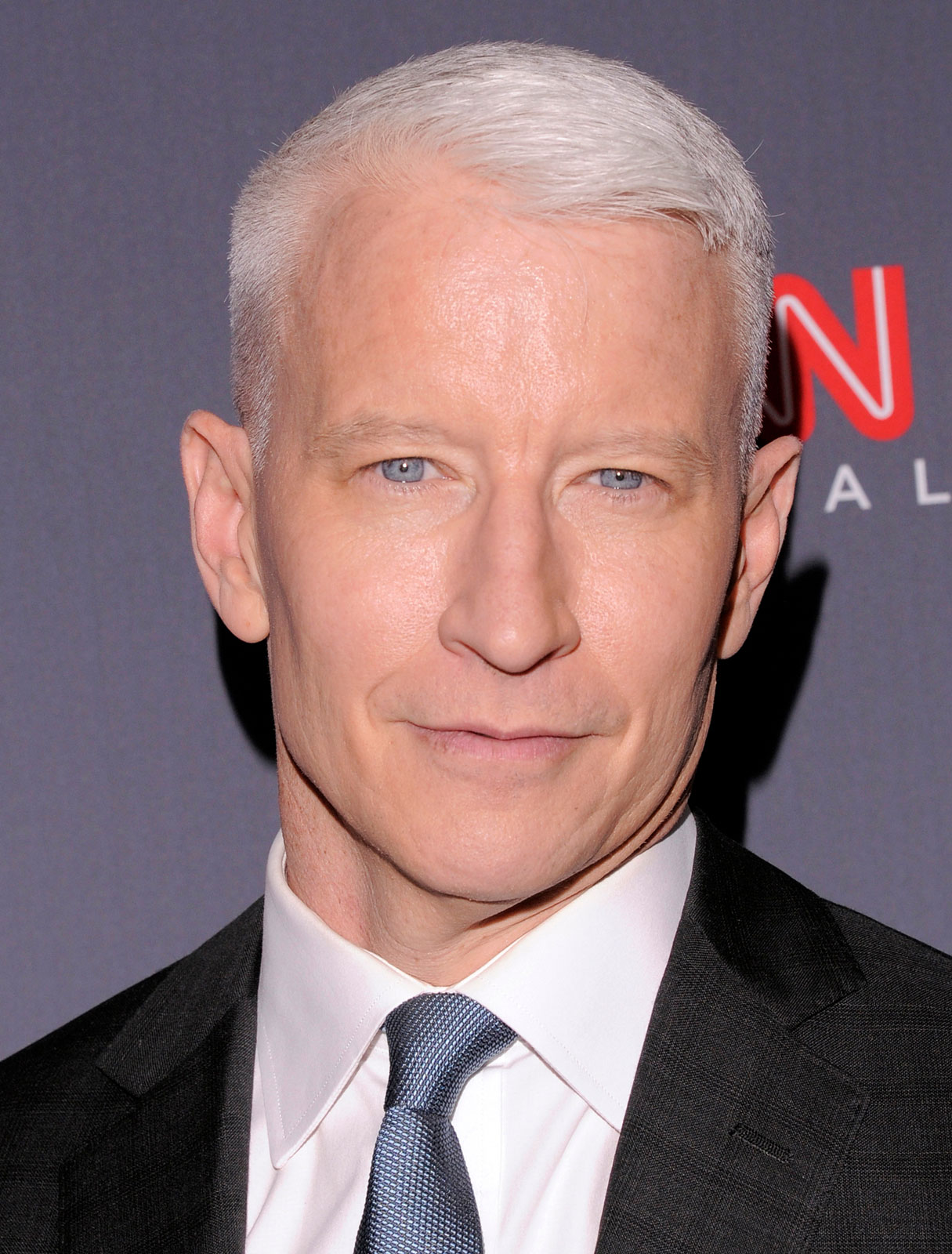Anderson Cooper is not just a household name in journalism; he’s an icon who has built his career on integrity, expertise, and a solid educational foundation. His educational background plays a significant role in shaping the journalist we see today. If you’ve ever wondered about the man behind the news desk, let’s dive into his academic journey and uncover how it all began. Let’s roll, shall we?
When you think of Anderson Cooper, the first thing that probably comes to mind is his commanding presence on CNN or his ability to break down complex stories with clarity. But before he became the face of journalism, Cooper embarked on a path of education that laid the groundwork for his future success. It’s like planting seeds that eventually grew into a towering tree of knowledge and experience.
As we explore Anderson Cooper’s educational background, we’ll take a closer look at the institutions he attended, the lessons he learned, and how those experiences shaped his career. This isn’t just about facts and figures; it’s about understanding the man behind the headlines. So, buckle up, because we’re about to take a trip through his academic past!
Early Life: The Foundations of Learning
Anderson Cooper’s journey began in New York City, where he was born on June 3, 1967. Growing up in a family with deep roots in journalism and media, Cooper was exposed to the world of storytelling from an early age. His mother, Gloria Vanderbilt, and his father, Wyatt Emory Cooper, provided a unique environment that encouraged curiosity and learning.
During his childhood, Cooper attended private schools in Manhattan, which set the stage for his academic pursuits. These early years were crucial in shaping his mindset and preparing him for the challenges ahead. It’s like when you’re learning to ride a bike; the training wheels may seem unnecessary at first, but they’re essential for building confidence and balance.
High School Days: Preparing for the Future
Anderson Cooper attended the prestigious St. Paul’s School in Concord, New Hampshire. This boarding school provided a rigorous academic environment that challenged students to excel in various fields. While there, Cooper developed a love for literature and history, subjects that would later influence his career as a journalist.
- St. Paul’s School is known for its emphasis on critical thinking and intellectual curiosity.
- Cooper’s time at the school helped him develop the skills needed to analyze complex issues.
- His peers and teachers recall him as a diligent student with a passion for learning.
It’s no surprise that this period in his life played a vital role in shaping his worldview. Think of it like a chef gathering ingredients; each experience added flavor and depth to the dish that would eventually become his career.
College Years: Building a Strong Academic Base
After high school, Anderson Cooper attended Yale University, one of the most prestigious institutions in the world. He majored in Political Science, a field that aligned perfectly with his interests in global affairs and public policy. Yale provided Cooper with the tools he needed to understand the complexities of the world and communicate them effectively.
During his time at Yale, Cooper was involved in various extracurricular activities, including the Yale Political Union. This organization allowed him to hone his debating skills and engage in discussions on important topics. It’s like when you’re practicing for a marathon; every step counts, and every challenge makes you stronger.
Key Courses and Influential Professors
At Yale, Cooper took courses that broadened his understanding of international relations, economics, and history. Some of the key courses he attended include:
- International Relations Theory
- Economic Development in the Third World
- Modern European History
These courses not only enriched his knowledge but also prepared him for the dynamic world of journalism. His professors, such as Bruce Ackerman and John Gaddis, were instrumental in shaping his academic perspective and encouraging him to pursue his passions.
Post-Graduate Studies: Expanding Horizons
After graduating from Yale, Anderson Cooper didn’t stop there. He continued to expand his knowledge by traveling and working in various parts of the world. This period was crucial in shaping his understanding of global issues and honing his skills as a journalist.
Cooper’s post-graduate experiences included working as a freelance journalist in war-torn regions, where he covered conflicts and humanitarian crises. These experiences gave him a firsthand look at the challenges facing the world and reinforced his commitment to telling important stories.
Traveling the World: A Classroom Without Walls
Cooper’s travels took him to places like Somalia, Rwanda, and Bosnia, where he witnessed the impact of war and poverty. These experiences taught him the importance of empathy and the power of storytelling. It’s like when you’re reading a book, but instead of words on a page, you’re living the story.
- His time in Somalia exposed him to the realities of famine and conflict.
- In Rwanda, he covered the genocide and its aftermath, bringing attention to the atrocities faced by millions.
- Bosnia provided him with insights into the complexities of ethnic tensions and peacebuilding efforts.
These experiences were invaluable in shaping his career and reinforcing his dedication to journalism.
Biography and Personal Data
Before we dive deeper into Anderson Cooper’s educational background, let’s take a moment to look at some key facts about his life. Below is a table summarizing his personal and professional data:
| Full Name | Anderson Hays Cooper |
|---|---|
| Date of Birth | June 3, 1967 |
| Place of Birth | New York City, USA |
| Education | Yale University (B.A. in Political Science) |
| Profession | Journalist, Anchor, Author |
The Impact of Education on Cooper’s Career
Anderson Cooper’s educational background has had a profound impact on his career. His studies at Yale and his experiences traveling the world have equipped him with the skills and knowledge needed to excel in journalism. It’s like when you’re building a house; a strong foundation is essential for stability and growth.
Cooper’s ability to analyze complex issues and communicate them effectively is a direct result of his education. Whether he’s covering breaking news or interviewing world leaders, his academic background provides him with the tools he needs to succeed.
Lessons Learned: Applying Knowledge in Real Life
One of the most important lessons Cooper learned during his education is the importance of empathy and understanding. He realized that journalism isn’t just about reporting facts; it’s about telling stories that resonate with people and make a difference. It’s like when you’re painting a picture; every stroke adds depth and meaning.
- Empathy allows journalists to connect with their audience on a deeper level.
- Understanding the context of a story is crucial for accurate reporting.
- Cooper’s education taught him the importance of integrity and accountability in journalism.
These lessons have guided his career and helped him become one of the most respected journalists in the industry.
Challenges and Triumphs: Overcoming Obstacles
No journey is without its challenges, and Anderson Cooper’s educational path was no exception. From navigating the complexities of international relations to dealing with the harsh realities of war-torn regions, Cooper faced numerous obstacles along the way. But through determination and perseverance, he overcame these challenges and emerged stronger.
One of the biggest challenges Cooper faced was balancing his academic pursuits with his passion for journalism. It’s like when you’re juggling multiple tasks; you have to prioritize and focus on what’s most important. Despite these challenges, Cooper remained committed to his goals and never lost sight of his vision.
Triumphs Along the Way
Cooper’s triumphs are numerous, both in his academic career and in his professional life. Some of his notable achievements include:
- Graduating from Yale University with honors.
- Receiving numerous awards for his journalism, including the Peabody Award and the Emmy Award.
- Becoming a household name as the anchor of CNN’s "Anderson Cooper 360°."
These triumphs are a testament to his hard work and dedication, and they continue to inspire aspiring journalists around the world.
Looking Ahead: The Future of Journalism
As Anderson Cooper continues to shape the future of journalism, his educational background remains a guiding force. He believes that education is key to understanding the world and communicating effectively. It’s like when you’re planting a garden; the seeds you sow today will bear fruit in the future.
Cooper’s commitment to education extends beyond his personal journey. He advocates for the importance of education in journalism and encourages young journalists to pursue their passions with dedication and integrity. It’s not just about reporting the news; it’s about making a difference in the world.
Advice for Aspiring Journalists
For those looking to follow in Anderson Cooper’s footsteps, here are a few pieces of advice:
- Never stop learning. Education is a lifelong journey.
- Develop a strong work ethic and remain committed to your goals.
- Embrace challenges and view them as opportunities for growth.
By following these principles, aspiring journalists can build successful careers and make meaningful contributions to the field.
Conclusion: The Journey Continues
In conclusion, Anderson Cooper’s educational background has played a crucial role in shaping his career as a journalist. From his early days in private schools to his time at Yale and beyond, Cooper’s academic journey has equipped him with the knowledge and skills needed to excel in the world of journalism. It’s like when you’re climbing a mountain; every step takes you closer to the summit.
As we’ve explored his educational background, it’s clear that Cooper’s commitment to learning and his passion for storytelling have been instrumental in his success. His experiences have taught him the importance of empathy, understanding, and integrity in journalism, values that continue to guide his career.
So, whether you’re an aspiring journalist or simply someone interested in the world of media, Anderson Cooper’s story serves as a reminder of the power of education and the impact it can have on our lives. Take action by sharing this article, leaving a comment, or exploring other content on our site. Let’s keep the conversation going and continue learning together!
Table of Contents
- Early Life: The Foundations of Learning
- High School Days: Preparing for the Future
- College Years: Building a Strong Academic Base
- Post-Graduate Studies: Expanding Horizons
- Traveling the World: A Classroom Without Walls
- Biography and Personal Data
- The Impact of Education on Cooper’s Career
- Lessons Learned: Applying Knowledge in Real Life
- Challenges and Triumphs: Overcoming Obstacles
- Looking Ahead: The Future of Journalism


